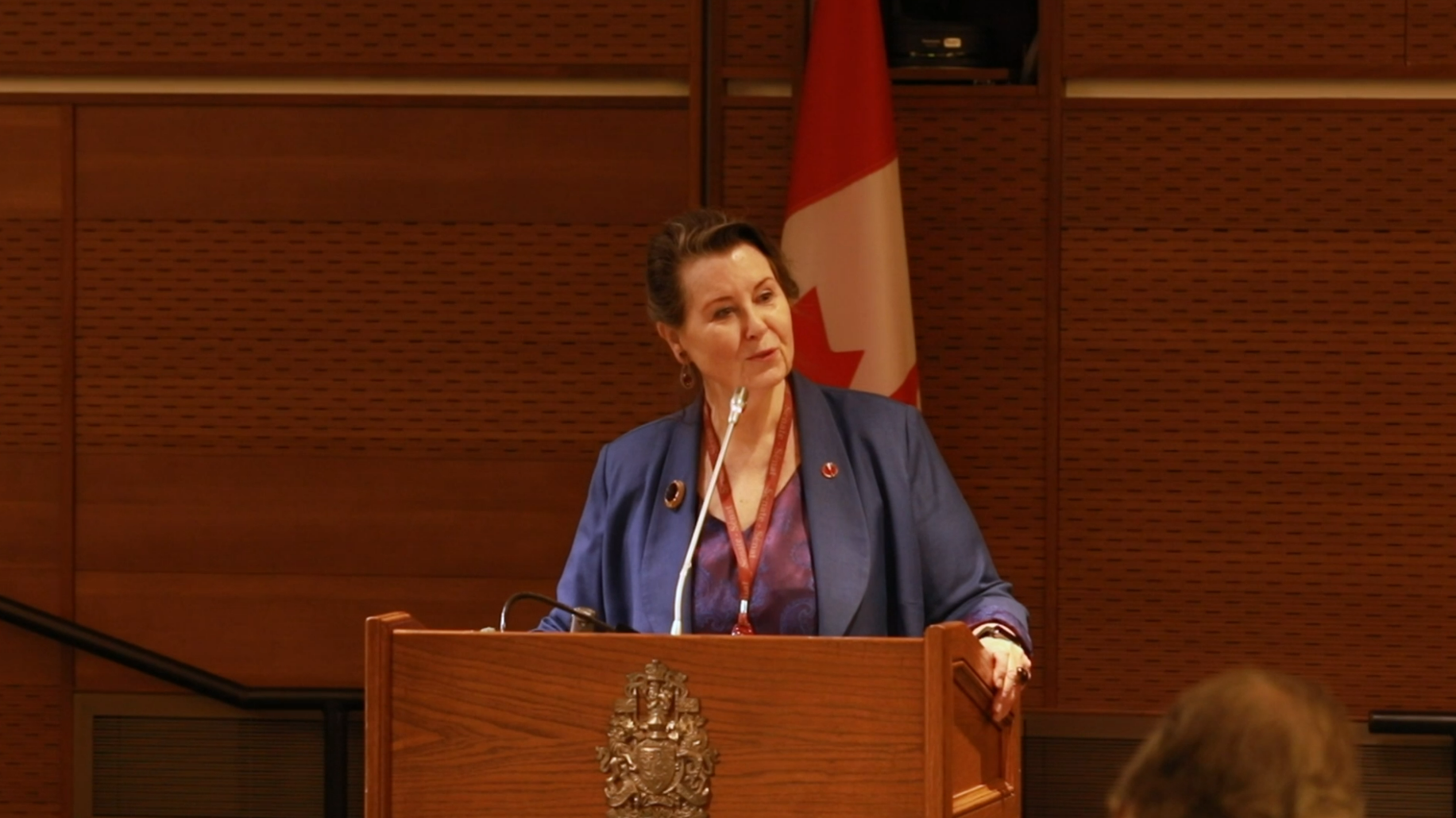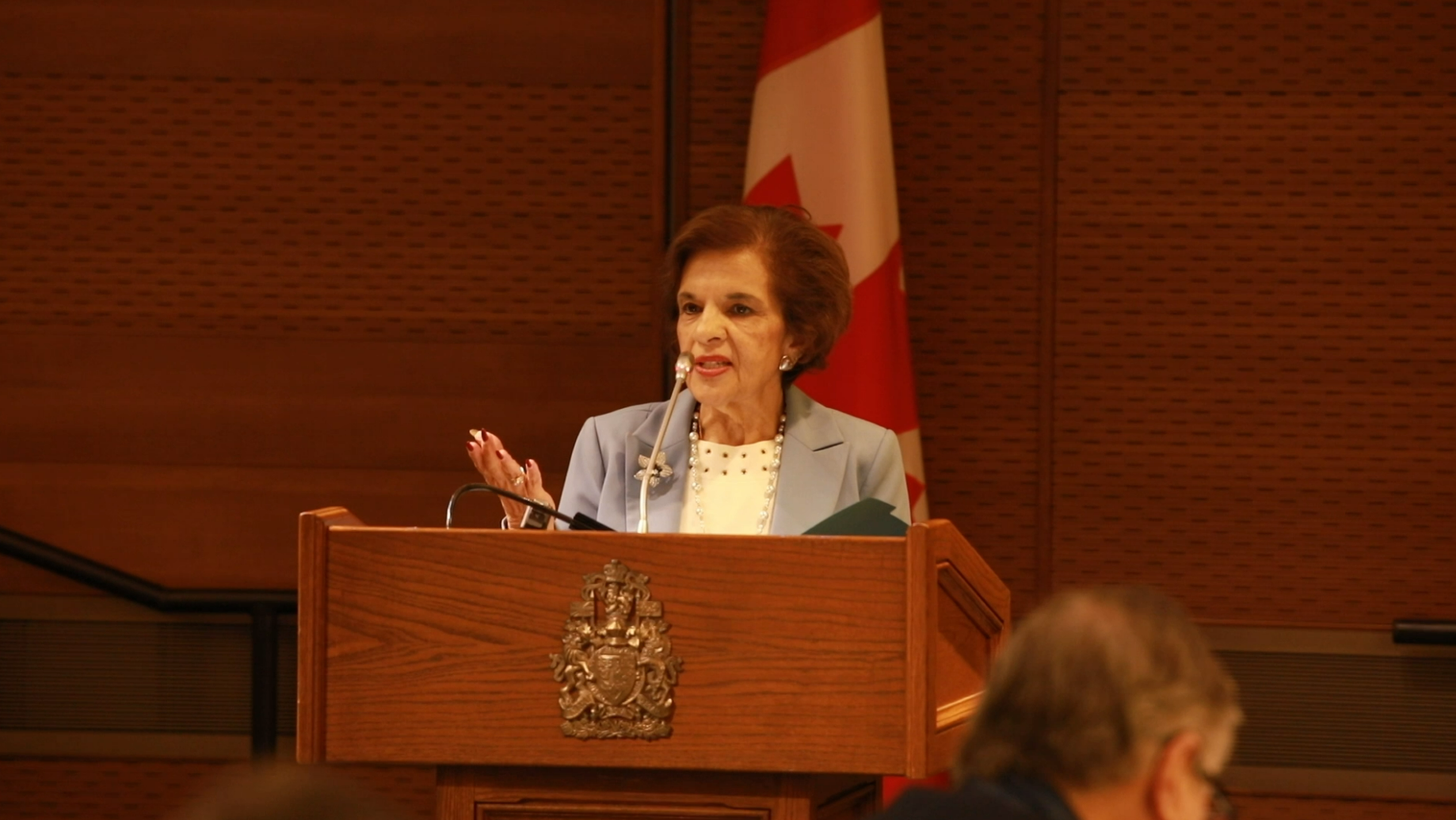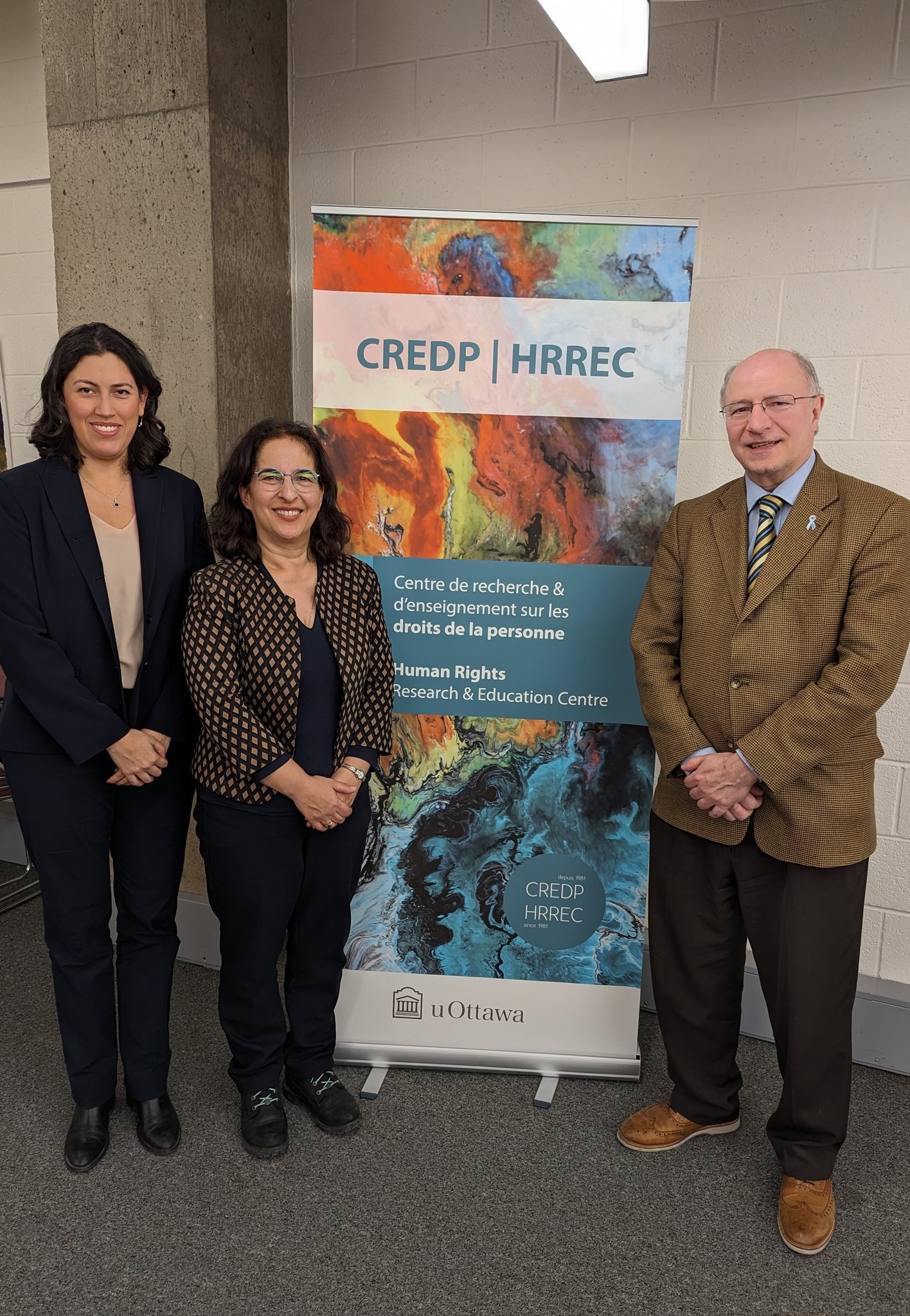Over 30 people including parliamentarians, senators, academics, civil servants, and representatives of human rights organizations attended a breakfast briefing on Parliament Hill with Professor Nazila Ghanea, the United Nations’ Special Rapporteur on freedom of religion or belief on Thursday, February 15. The event, titled "From Iran to the World: What changing tactics in the persecution of Baha’is in Iran reveal about global trends in freedom of religion or belief", was organized by the Baha’i community of Canada’s Office of Public Affairs and co-sponsored by Senator Marilou McPhedran, Senator Mobina Jaffer, and Parliamentarians Elizabeth May, Garnett Genuis and Terry Duguid.




The briefing sought to raise awareness in Canada about recent changes in tactics involving new and even harsher methods adopted by Iranian authorities to persecute Baha’is, “Since October 2023, over 200 incidents of persecution have occurred including a systematic program of home invasions and arrests unfolding in cities across the country. Alarmingly, two-thirds of those detained have been women, predominantly in their 20s and 30s highlighting an escalation in attacks against women in recent months,'' said Elham Seddigh Ayafor, Director of Government Relations for the Baha’i Community of Canada. “Prof. Ghanea’s academic visit to Canada provides a unique opportunity to learn from her mandate and situate the persecution we are witnessing against the Baha’is in Iran within a global context.”
In her introductory remarks, Senator McPhedran highlighted the importance of UN special rapporteurs within the international human rights framework, “At a time where we are seeing a regression of human rights worldwide, the work of UN special rapporteurs is essential. They give practically limitless numbers of hours of pro bono time to supporting the international rule of law.”
Professor Ghanea’s briefing, which drew from the experience of Baha’is in Iran as a case study, explored the protected right of freedom of religion or belief within the global human rights framework, the diverse forms and contexts for religious persecution, and the essential role of governments in upholding and promoting this human rights internationally. “The targeting of people because of their religion or belief can be very overt or it can be subtle. It can be in the midst of war and conflict or it can be in peace time. It can be directed by the government or when the government fails to adequately protect those people and accept their equality,” she said.
Professor Ghanea highlighted how despite having weaker international mechanisms for protecting freedom of religion or belief, this right is inseparable from other areas of human rights, “people are targeted because of their religion or belief but then they suffer economic, social, cultural, civil and political violations … invariably a whole host of other human rights are also being violated at the same time.”
Professor Ghanea also emphasized the importance of cross-party cooperation to ensure that freedom of religion or belief remains a national priority. “… it falls on the shoulders of champions, legislators, politicians, and lawyers like yourselves to carry the burden of an area of human rights that is only increasing in its violation around the world and whose international mechanisms are not as robust as other areas of human rights,”. She underscored the key role Canada plays in promoting the protection of freedom of religion or belief globally and noted the presence of parliamentarians from across the political spectrum at the event as an encouraging sign of Canada’s commitment to this fundamental right.
Professor Ghanea’s academic visit to Canada also included a public lecture at the Human Rights Research and Education Centre at the University of Ottawa and a formal invitation to the Senate.
A recording of the breakfast briefing can be found here.

